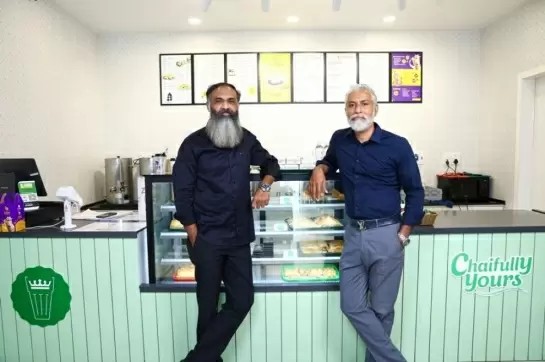Total travel bans 'collective punishment'; scientific methods should contain Omicron: Guterres
United Nations
30-November-2021
.webp)
PHOTO: IANS
Secretary-General Antonio Guterres views completely banning citizens of certain countries from travel as a form of "collective punishment" and nations should instead use scientific methods to prevent the spread of the Omicron variant of Covid-19, according to his Spokesperson Stephane Dujarric.
"I am now deeply concerned about the isolation of southern African countries due to new Covid-19 travel restrictions," Guterres said in a statement earlier on Monday.
He added, "I appeal to all governments to consider repeated testing for travellers, together with other appropriate and truly effective measures, with the objective of avoiding the risk of transmission so as to allow for travel and economic engagement."
Explaining Guterres's statement, Dujarric said, "What the Secretary-General is saying is, 'We think there are more science-based solutions (like) increased testing and even if people need to go into quarantine. But blanket barring of certain citizens, we feel, is a form of collective punishment in a way."
While many countries, including the US are banning travellers from South Africa and some neighbouring countries, India has taken a new approach by not banning visitors from those countries but requiring them to undergo more tests and quarantine themselves for seven days.
India is applying the new testing and quarantine requirements to several non-African countries in trying to keep out the Omicron variant.
Watch This TWL Video
Besides South Africa and Botswana, the additional requirements will apply to travellers from all European countries and nine other nations that India has designated as "at-risk" countries.
While praising South Africa for acting promptly to identify the Omicron variant, Guterres slammed the inequality in vaccine availability as immoral.
"The people of Africa cannot be blamed for the immorally low level of vaccinations available in Africa -- and they should not be penalized for identifying and sharing crucial science and health information with the world," he said.
Dujarric said that "We are guided by our expert colleagues at WHO (World Health Organisation)" who have said that a lot more studies have to be done on Omicron's transmissibility, its severity and the efficacy of the vaccines.
WHO's Africa office has criticised the travel bans saying that they may only "slightly" reduce the spread of Covid-19 "but place a heavy burden on lives and livelihoods."
The restrictions "should be scientifically based," it added.
President Joe Biden's Spokesperson Jen Psaki defended the US ban that came into force on Monday targeting South Africa and seven other African countries.
"The objective here is not to punish; it is to protect the American people," she told reporters.
As for singling out the African countries although the Omicron variant has been found in some European countries, Psaki said, "I would note that the difference between South Africa and European countries is that there are already hundreds if not thousands of cases of the new variant in South Africa and not as many, much a lower number, at this point in Europe." -IANS
More Headlines
Mumbai Police Bust High-Profile Sex Racket in Hiranandani Hotel
NPG Evaluates 8 Key Infrastructure Projects Under PM GatiShakti Plan
Rupee Symbol Debate Heats Up as Tamil Nadu Opts for ‘ரூ’
AIADMK Walks Out, BJP Boycotts Tamil Nadu Budget Session
AI Cybersecurity Startup Neural Defend Raises $600K in Pre-Seed Round
Mumbai Police Bust High-Profile Sex Racket in Hiranandani Hotel
NPG Evaluates 8 Key Infrastructure Projects Under PM GatiShakti Plan
Rupee Symbol Debate Heats Up as Tamil Nadu Opts for ‘ரூ’
AIADMK Walks Out, BJP Boycotts Tamil Nadu Budget Session
AI Cybersecurity Startup Neural Defend Raises $600K in Pre-Seed Round










